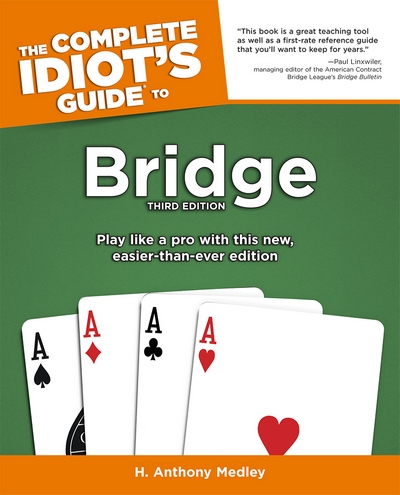| The first and second editions of Complete Idiot's Guide to Bridge by H. Anthony Medley comprised the fastest selling beginning bridge book, going through more than 10 printings. This updated Third Edition includes a detailed Guide to Bids and Responses, along with the most detailed, 12-page Glossary ever published, as well as examples to make learning the game even easier. Click book to order. Available in all bookstores and on Kindle. | ||
|
Thumbnails Jan 24 by Tony Medley Race for Glory Audi vs Lancia (7/10): 108 minutes. R. Almost at the outset of this film about the battle between Audi and Lancia in the 1983 World Rally Championship there is a statement that Americans generally don’t understand the rally competition, and leaves it there. That is true. But this film would have been a lot better if it had taken a minute to explain how rallies work. Since the film doesn’t do it, I will. A ”season” consists of 13 events of three- and four-day drives in various locations and in various driving conditions. The cars are timed against the clock and do not race face-to-face, so to speak. Had this been explained, the movie would be much more comprehensible to American audiences. In 1983 Lancia challenged Audi’s four-wheel drive with its lighter but less maneuverable rear wheel drive mid-engine Lancia 037. The driving force behind Lancia’s effort was Cesare Florio (Riccardo Scamarcio). And he placed his bets on his reluctant driver, Walter Röhrl (Volker Bruch), who did not want to participate in every event because he had already won a driver’s championship and wasn’t interested in winning another. Directed by Stefano Mordi from a screenplay by Mordini, Filippo Bologna, and Scamarcio, there are not a lot of racing scenes, but among those that are shown are shots of side-by-side racing, which does not occur in Rally events. The film concentrates, instead, on Cesare’s difficult quest to win the Rally with a rear-wheel-drive car and all the political obstacles he had to overcome. It’s not the best auto racing movie I’ve seen, but it’s reasonably entertaining. It ends, however, with the graphic that reads, “…the content has been freely reworked by the imagination of the authors, the description of the events and characters involved has been dramatized and some characters and events contained in the film have been created for narrative needs. The film cannot be considered a faithful description of the facts.” In other words, it’s mostly fiction, probably like the scene in which Röhrl stops racing in the middle of an event to buy some honey, which is, to the film’s discredit, not explained. Reacher (7/10): Eight 49-minute episodes. TV-MA. Amazon Prime. This is the second installment of Lee Child’s Reacher series starring Alan Ritchson. This one is based on Child’s novel “Bad Luck and Trouble.” Like the first installment, Ritchson captures Reacher perfectly and the story is involving as someone is killing all the members of Reacher’s crew when he was in the army and Reacher and his remaining crew are out to solve the problem as they are all targets. Unfortunately, the casting of Maria Sten as the female lead greatly diminishes the enjoyment because whenever she mutters a line it’s akin to running her fingernails across a blackboard. Other than that, though, it’s a worthwhile watch. THE THREE MUSKETEERS - PART I: D’ARTAGNAN (7/10): 121 minutes. NR. Prime video. This telling of Alexandre Dumas’ familiar tale is as good as Gene Kelly’s 1948 film, and that’s saying a lot. In French. Freud’s Last Session (6/10): 109 minutes. PG-13. Atheist Sigmund Freud (Anthony Hopkins) committed suicide in 1939. Shortly before, he was visited by an unknown Oxford Don. This totally fictional film presupposes that that Don was author (Chronicles of Narnia)/theologian C S Lewis (Matthew Goode) and that they had monumental conversations about their divergent views. Alas, their conversations in this film are far from edifying. Rather, it deals more with Freud’s anger and selfish relationship with his lesbian daughter Anna (Lisa Fries) who became a renowned psychoanalyst. This was a dubious idea, poorly executed despite fine acting by Hopkins and Fries. The Bricklayer (5/10): 100 minutes. R. A 21st Century formulaic thriller that epitomizes the nonsense foisted upon us by today’s moviemakers. It has brutal fights, unrealistic gun battles galore, silly car chases, and a story that defies logic and reason. Here’s a sample of the dialogue: Kate (Nina Dobrev) “I froze…you coulda been killed.” Fail (Aaron Eckhart) “It wouldn’t be the first time.” Hardly Casablanca. In accordance with today’s formulae, most of the heroes’ dialogue is spoken in what appear to be whispers. I’m not sure why this has become the method of choice, but it is irritating like the rest of the movie.
|
||
